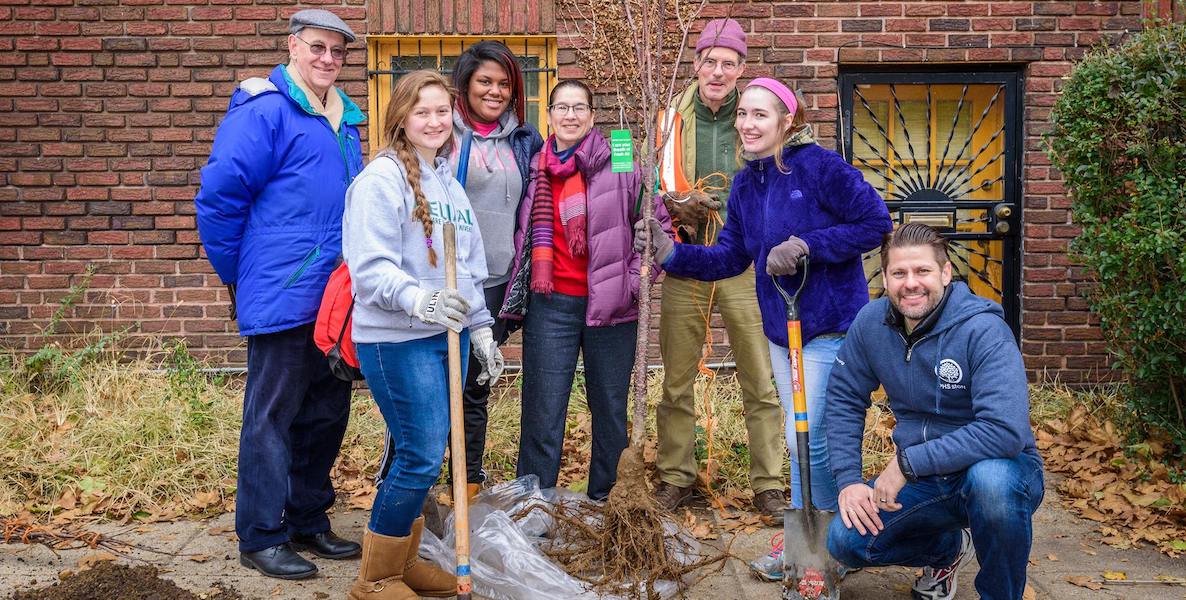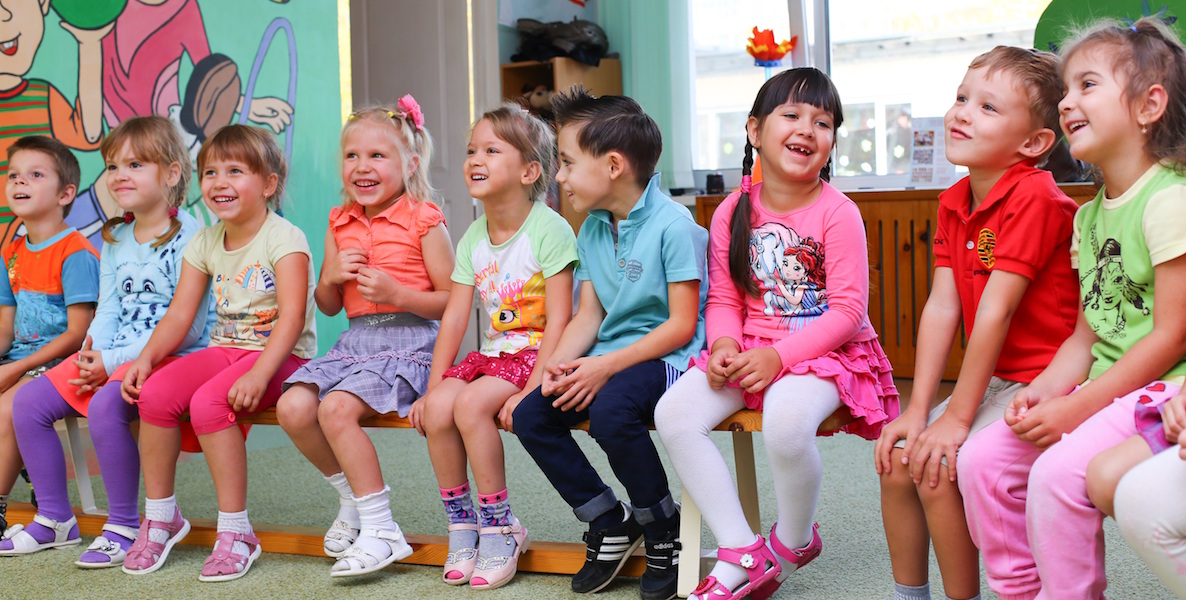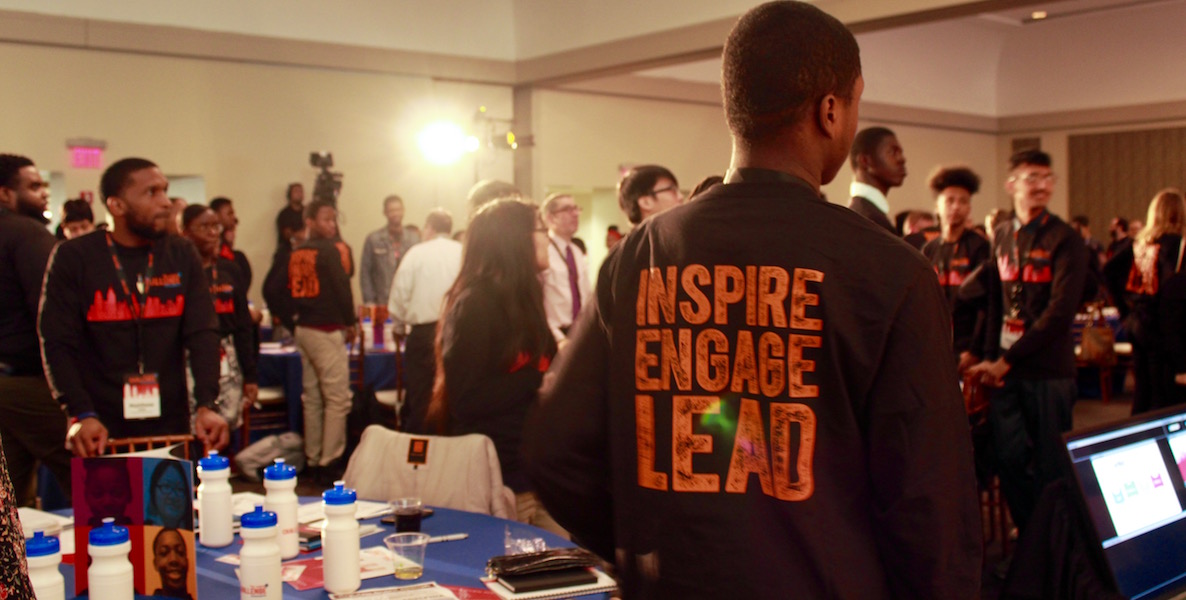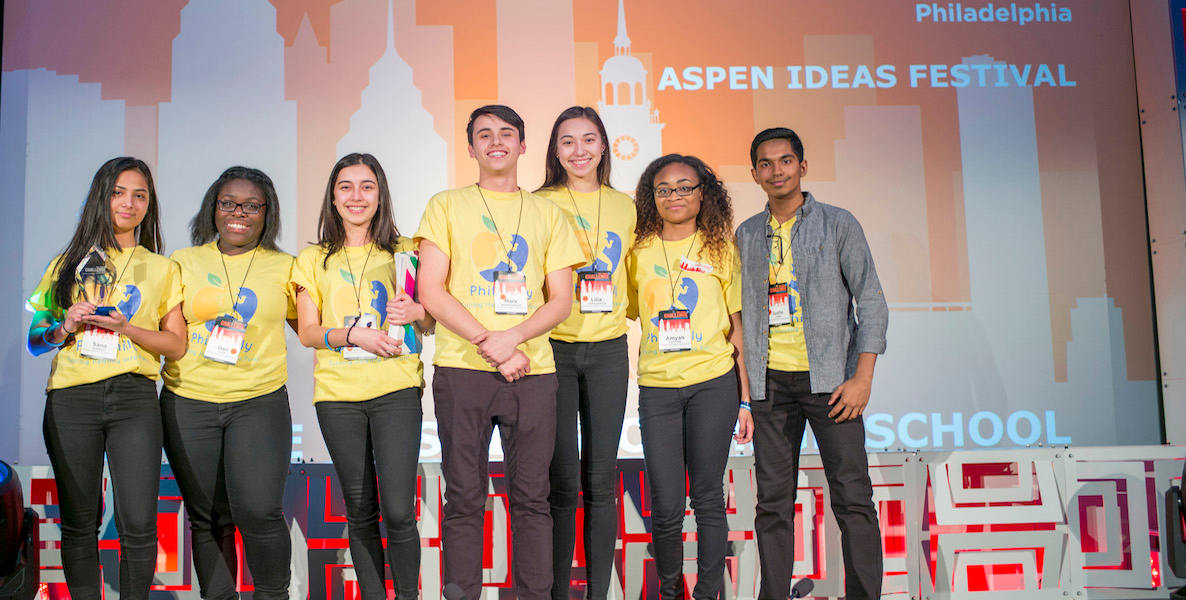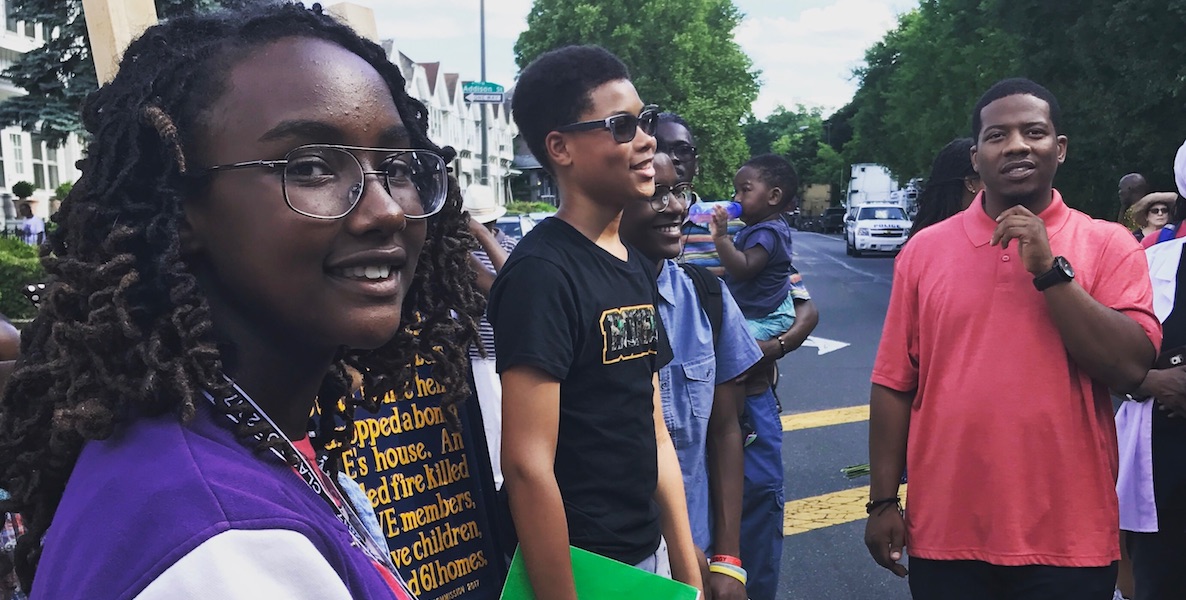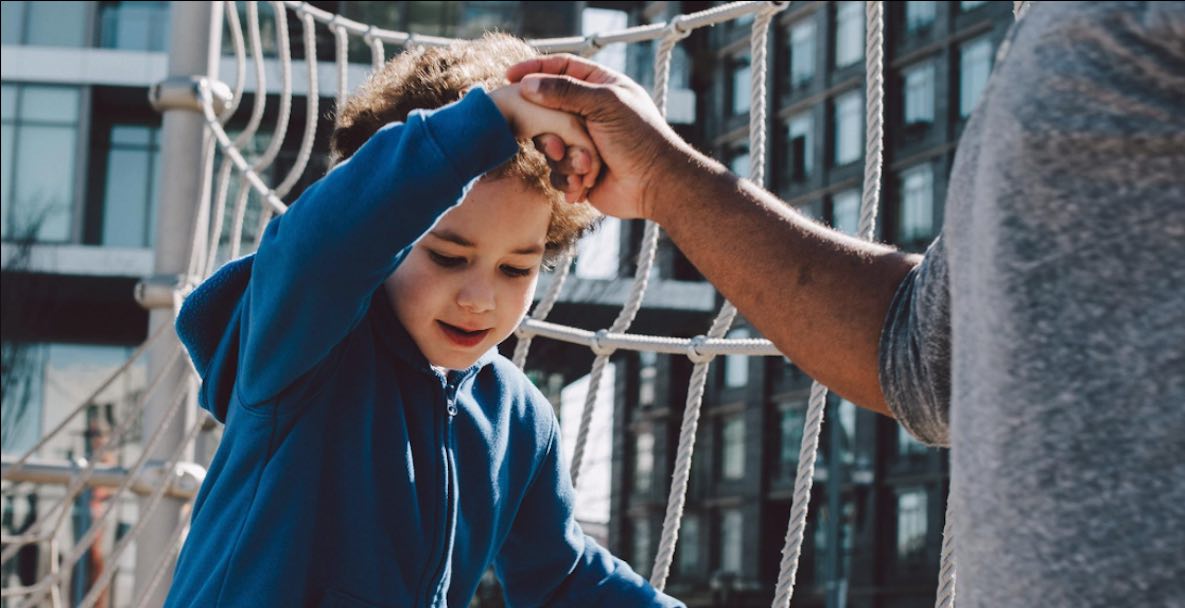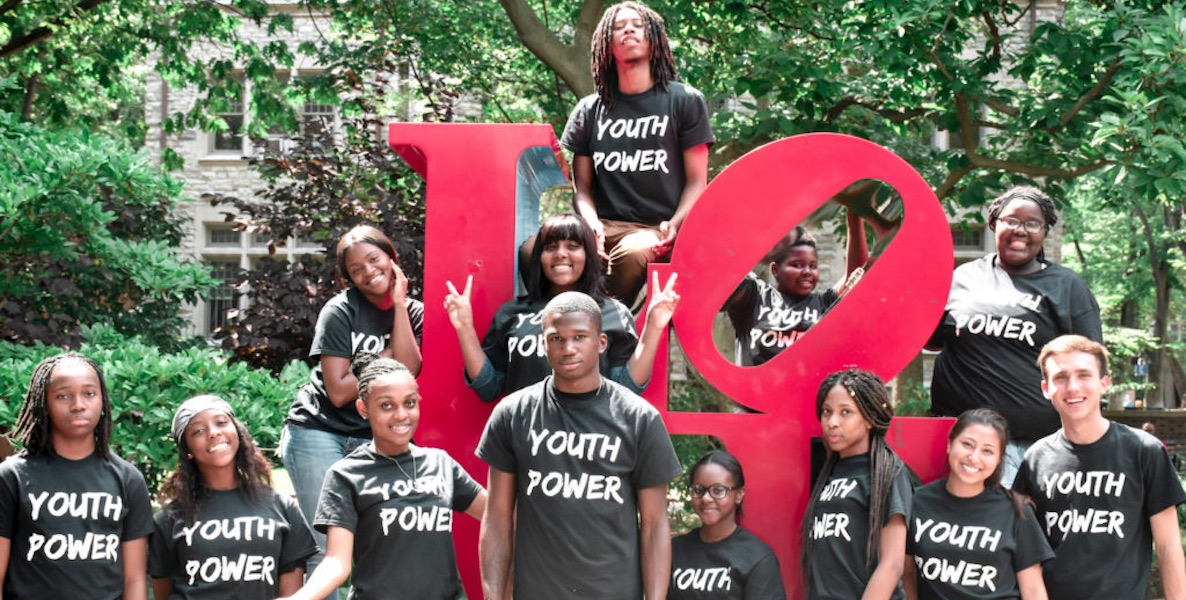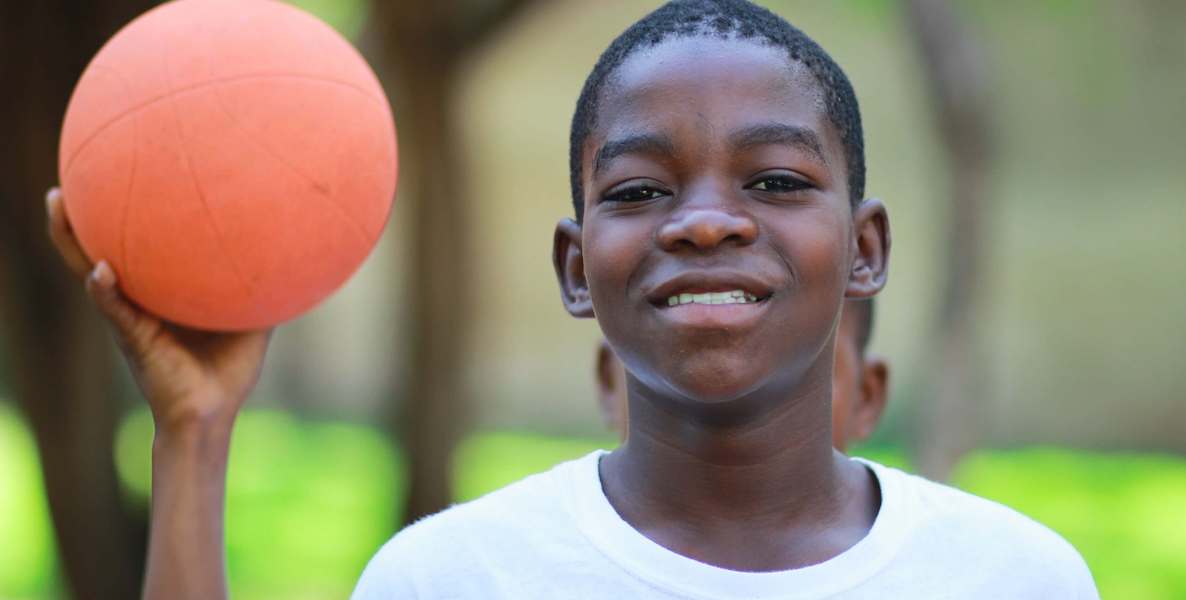Among the first acts of Mayor Kenney’s new term this year was announcing a seismic change to his Department of Human Services, consolidating under Commissioner Cynthia Figueroa a number of offices whose aim is to help children in the city of Philadelphia.
Figueroa is now Deputy Mayor of a new cabinet post, the Department of Children and Families. But it’s what was buried in the mayor’s announcement in January that is the truly inspiring idea now taking shape in Figueroa’s office.
![]() This spring, she will launch a Children and Families Cabinet, similar to those in cities and states around the country, whose mission will crystallize around one prevailing question: What can we do for children in Philadelphia?
This spring, she will launch a Children and Families Cabinet, similar to those in cities and states around the country, whose mission will crystallize around one prevailing question: What can we do for children in Philadelphia?
It’s a question that is as urgent as it is lofty: 35 percent of children in Philadelphia live in poverty, in circumstances that will keep them in poverty unless we, as a city, can make real and substantive changes to the course of their lives.
That is a lift that, as Figueroa is well aware, will take more than one cabinet department, mayor, deputy or idea. It will take a concerted effort by many stakeholders—including all of us.
“We need to move the needle on the quality of life for children and families in Philadelphia,” Figueroa says. “What are the ways we can do that? How do we create more equity in the experience families have? What can we do to change the trajectory of children living in poverty?”
These are the questions, bolstered by data, that Children’s Cabinets address. Several states have had a version of a Children’s Cabinet off and on for decades. According to The Children’s Funding Project, which started a Local Children’s Cabinet Network to share best practices, about 50 cities or counties have launched their own local cabinets in recent years.
These include New York City, St. Louis, Maryland’s Arundel County and Newark, and often incorporate not just government departments, but also social service agencies, schools and other community members.
The Citizen first wrote about Children’s Cabinets in 2018, something Figueroa cites when talking about how she’s starting to think about it here in Philly.
In Somerville, Massachusetts, for example, Mayor Joseph Curtatone in 2009 launched the Somerville Promise Alliance, to address the academic, social and environmental needs of children, during and out of school, from cradle to career.
The Alliance holds monthly meetings with the schools superintendent, leaders of the local anti-poverty agency, public health agency, and nonprofit community groups to decide together how and where to set up programs, and focus their efforts—working as one, rather than as separate siloed institutions.
Kids here live in neighborhoods where gun violence has increased, hunger has increased, schools are toxic, and large swaths of citizens are imprisoned or living in neighborhoods with few resources to keep them healthy and employed. There is no time to delay.
In one instance of how this works, Somerville used citywide data that compared the numbers of students eligible for free/reduced lunches in particular schools with the numbers of children from those neighborhoods who are attending after school programs, to see where there are gaps in their services.
The cabinet then developed a plan for filling that gap—subsidizing more after-school slots for young kids, developing programs for kids who would be the first in their families to go to college, bringing more programs to where the kids most in need are.
“Thinking about city budget, priorities, decision-making through the lens of kids ensures good outcomes for everybody,” Anna Fox Doherty, director of SomerPromise, told The Citizen. “When you think about parks, playgrounds, transportation routes, public safety, education—right off the bat you’re being more inclusive of marginalized populations. And you’re growing a whole generation of people who will have less need of very expensive services down the line, and less unhealthy behavior.”
In Philly, the reorganization of DHS has already put in one place much of the city work focused on children. Figueroa now oversees the City’s education programs, including the 17 Community Schools with (three more planned for the fall), which bring social services and other neighborhood resources into school buildings; early childhood education, including pre-K (expanding to 4,300 slots in the fall); the Education Support Center; after school programs, most of which are located at schools; and work-ready programs both in the summer and after school.
![]() Figueroa has spent the last several weeks doing research, talking to local and national thought leaders—including in Somerville—the Mayor’s Office, and other city departments that serve families and community organizations so that in the spring she can announce who will sit on the Children’s Cabinet, and the areas of its focus.
Figueroa has spent the last several weeks doing research, talking to local and national thought leaders—including in Somerville—the Mayor’s Office, and other city departments that serve families and community organizations so that in the spring she can announce who will sit on the Children’s Cabinet, and the areas of its focus.
That, she says, will be determined by what she learns from her listening tour, by the mayor’s priorities and by data, from sources like the census, police, DHS and Health Department.
Already, Figueroa says the city knows where the poorest neighborhoods are, where health disparities and food insecurity are the most rife, as well as a host of other concerns. The key will be narrowing that list to the highest-priority issues that everyone at the table can rally around.
Figueroa notes that unlike other cities, Philly is not launching its Children’s Cabinet in response to a particular crisis. Which is not to say, there is not a crisis for children: Kids here live in neighborhoods where gun violence has increased, hunger has increased, schools are toxic, and large swaths of citizens are imprisoned or living in neighborhoods with few resources to keep them healthy and employed. There is no time to delay. Still, it is no small feat to bring different sectors together in Philly to work side by side on solving issues.
“We know 35 percent of children here live in poverty, and this is not a magic wand for solving that,” she says. “But are there two to five things we can do to help move the needle? When we build the cabinet, we want people to be excited by what we’ve laid out, so they get on board.”
“We need to move the needle on the quality of life for children and families in Philadelphia,” Figueroa says. “How do we create more equity in the experience families have? What can we do to change the trajectory of children living in poverty?”
Once established, the cabinet will be tasked with evaluating the problems using available data and collectively figuring out the best way to make measurable changes.
Take the issue of food insecurity, for instance: A collaborative solution might involve finding a way to get more and better low-cost food to children, perhaps through a Community School food bank. But, Figueroa notes, it might also include working with the Department of Licenses and Inspections to help develop locally run food markets along business corridors.
“Food insecurity drives so much info,” she says. “It’s an economic issue, and a day-to-day issue of do children have food to eat? How we solve that is the work.”
![]() Figueroa has spent the last 20 years ping-ponging between nonprofit social service work and “seeing how the sausage is made” in city government. She worked for Congreso de Latinos Unidos, under its founder Alba Martinez, then ran Women Against Abuse for about six years, before joining Mayor Nutter’s administration as deputy commissioner of DHS under Martinez. She then went back to Congreso, as its director for five years, until Mayor Kenney wooed her back to government to run DHS in his first term.
Figueroa has spent the last 20 years ping-ponging between nonprofit social service work and “seeing how the sausage is made” in city government. She worked for Congreso de Latinos Unidos, under its founder Alba Martinez, then ran Women Against Abuse for about six years, before joining Mayor Nutter’s administration as deputy commissioner of DHS under Martinez. She then went back to Congreso, as its director for five years, until Mayor Kenney wooed her back to government to run DHS in his first term.
She says she is “compelled by the macro work” of city government to push big changes. But she’s inspired by the resilience she discovered in her grassroots work for Congreso—the same resilience needed for any big changes to have real success.
“By any indicator, North Philly, just like West Philly, ranks at the top in all the wrong way,s” Figueroa says. “But it is a really resilient, beautiful community, and there are amazing things I’ve found there that carry me. I learned that change can happen.”
Correction: A previous version of this story slightly misstated the education programs Figueroa oversees.
Photo by Bailey Torres / Unsplash

